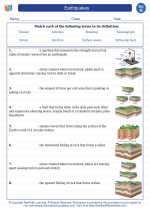Density
Definition
Density is a measure of the amount of mass in a given volume of a substance. It is calculated by dividing the mass of an object by its volume.
Formula
The formula for calculating density is: Density = Mass / Volume
Units
The standard unit for density is kilograms per cubic meter (kg/m3). However, in everyday use, grams per cubic centimeter (g/cm3) or grams per milliliter (g/mL) are also commonly used.
Example
For example, if an object has a mass of 100 grams and a volume of 50 cubic centimeters, its density would be calculated as follows:
Density = 100g / 50cm3 = 2g/cm3
Relationship to Buoyancy
Objects with a higher density than the fluid they are placed in will sink, while objects with a lower density will float. This is the principle behind buoyancy, as demonstrated by objects floating in water.
Applications
Density is an important concept in various fields, including engineering, chemistry, and geology. It is used to characterize and compare materials, and has practical applications in areas such as construction, manufacturing, and resource exploration.
Study Tips
- Understand the concept of mass and volume, as they are key components in calculating density.
- Practice using the density formula with different examples to become comfortable with the calculations.
- Explore real-world applications of density to gain a deeper understanding of its significance.
[Density] Related Worksheets and Study Guides:
.◂Science Worksheets and Study Guides Eighth Grade. Earthquakes
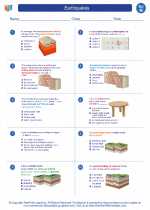
 Worksheet/Answer key
Worksheet/Answer key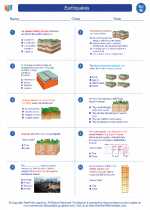
 Worksheet/Answer key
Worksheet/Answer key
 Vocabulary/Answer key
Vocabulary/Answer key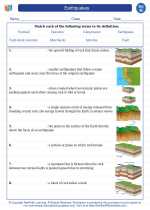
 Vocabulary/Answer key
Vocabulary/Answer key
 Vocabulary/Answer key
Vocabulary/Answer key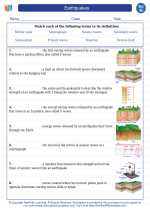
 Vocabulary/Answer key
Vocabulary/Answer key